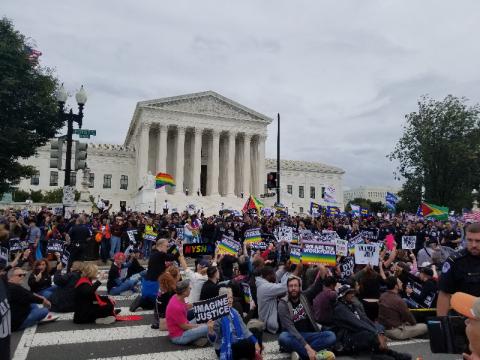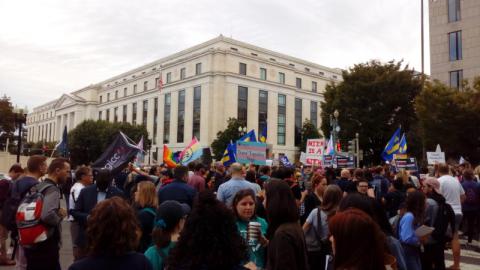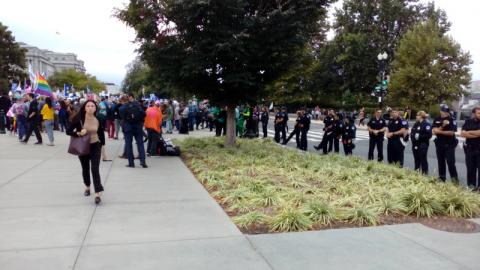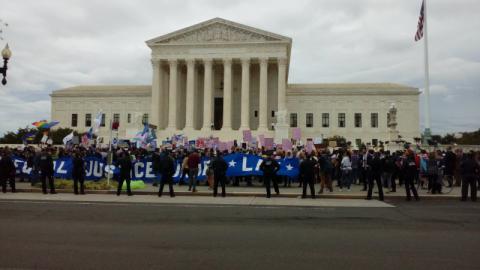Over 160 arrests as Supreme Court hears case to decide legality of firing GLBTQ employees
![]() Video-Reinforements from NYC blockade 1st st 1 min 30 sec
Video-Reinforements from NYC blockade 1st st 1 min 30 sec
On the 8th of October, the US Supreme Court heard arguments in two GLBTQ discrimination/ Title VII cases. A huge crowd of protesters gathered outside. Police efforts to pre-empt a civil disobedience failed when that portion of the protesters arrived late due to a highway traffic jam.
One of these cases concerns whether firing transgender employees violates the Civil Rights Act's Title VII sex discrimination provisions. The other concerns whether firing men for dating men but not firing women for dating women constitutees sex discrimination under the same law.
As the day opened, a "suspicious package search" closed the streets near the Supreme Court. Brett Kavanaugh may have used this real or made-up incident to ensure he was able to reach the court without getting caught behind something like an old sailbot with a dozen people locked to it. Near the starting time for the hearing this facade of security was dropped, and protesters took the sidewalk in front of the court. A smaller group of anti-transgender fake "feminists" was overwhelmingly outnumbered by pro-transgender activists who in turn were suppported by the other GLBTQ activists. While all of this took place, busses full of protesters prepared to blockade the streets stewed in traffic behind a serious crash.
Police had a heavy line of cops set up to keep the crowd off 1st St, only to have 1st st get blocked anyway when the busses from NYC arrived late. An estimated 160 arrests resulted. CNN reports that all four remaining liberals on the bench believe Title VII forbids both sexual orientation and anti-transgender discrimination, while it remain unknown if Niel Gorsuch will side with them. Trump reportedly is taking a pro-discrimination position, and if Gorsuch decides to agree with him no doubt Kavanaugh and his "boys club" will then carry the day. At that point, every GLBTQ man or woman who is employed in any state without a state-level antidiscrimination law can then be fired at any time for that reason alone.





